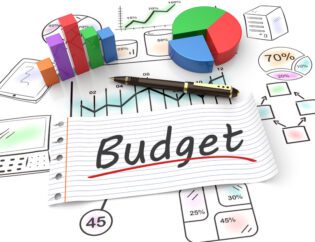
Starting a business can be an intimidating and complicated process since it requires hours of research and planning. There are countless details to manage and countless questions about where to start. L.V. Browne, CPA is here to simplify the process for you by summarizing the process into 10 easy steps.
- RESEARCH YOUR MARKET: It’s important to research the market your business is targeting. This way, you can estimate the success of your business and change accordingly to the market’s— or in other words— potential customer’s current needs.
- DRAFT A BUSINESS PLAN: A business plan is an essential foundation for every good business. It delivers an overview of your business's future ambitions, strategy, and key success factors. It’s most crucial when attempting to gain partners and funding from sponsors.
- FUND THE BUSINESS: By using your business plan, you are then able to determine the amount of funding needed to start your business. This funding can come from various places such as your savings, investments, and/or sponsorships. If you are unable to conjure all the necessary funding, you are always able to accept loans, although this option is best kept for last.
- PLACE YOUR BUSINESS: Where you place your business is just as important as what your business is; this is true whether it’s in your own home, office building, or online. There are different sets of legal requirements and procedures to be followed depending on where you decide to set up your business.
- CHOOSE A BUSINESS STRUCTURE: Choosing your business structure is yet another one of the most important decisions you’ll have to make before starting your business. The structure you choose has legal, financial, tax and operational implications for your business and will essentially dictate its capacity and potential success.
- NAME YOUR BUSINESS: Picking a name for anything is a challenging process. Your business name will essentially be its first introduction to any interested party which makes it important to choose a name that properly reflects your business’ brand and spirit.
- REGISTER YOUR BUSINESS: Once each of the previous steps has been fulfilled, you are ready to officially register your business. How and where you register varies by business structure and location, meaning it’s important you already have these things figured out.
- GET A FEDERAL & TAX ID: You use your employer identification number (EIN) for many important tasks as you start your business such as opening a bank account or paying taxes for your business. It’s like your business’ social security number.
- APPLY FOR LICENSES & PERMITS: It’s important to have all the proper licenses and permits needed to operate your business to avoid legal repercussions. The licenses and permits you need will vary by location, industry, and more.
- OPEN A BUSINESS BANK ACCOUNT: Having a bank account for your business specifically helps you keep track of your business’ expenditures and income separately from personal. Having this account can also help you handle legal, tax, and day-to-day issues.
Once you’ve fulfilled all these steps, you are free to run your business as you please. L. V. Browne, CPA is here to help you at every stage of your entrepreneurial journey. Contact L.V. Browne, CPA with any concerns or questions. We’re here to help you see you and your business forward! We can help you formulate a business plan, determine the best structure for your business for tax purposes and for legacy planning and more. Schedule a free consultation on your schedule here: calendly.com/brownecpa.
Work Cited
“10 Steps to Start Your Business.” U.S. Small Business Administration, https://www.sba.gov/business-guide/10-steps-start-your-business. Accessed 13 June 2022.










